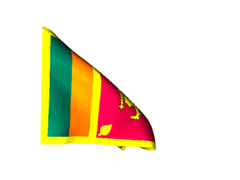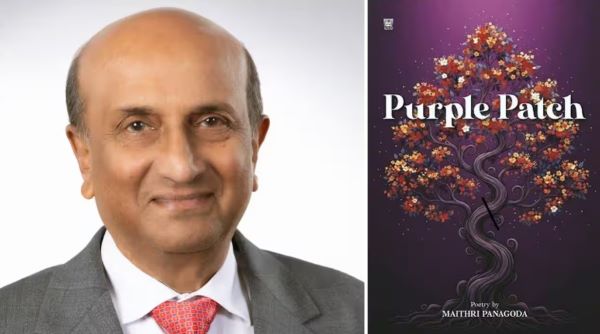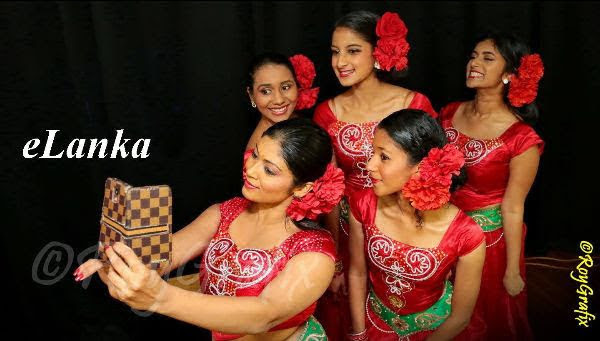The Descent Into a Kafkaesque World

Photo courtesy of Artmajeur
Sri Lanka will celebrate its 73rd independence anniversary on February 4 but for many years now, the day has become one to recount failures and the loss of achievements made during the colonial period.
Sri Lanka became a British colony in 1815. During the 19th century there were five notable areas in which there were sweeping changes: the economy, the administrative structure, infrastructure, the railway and commercial activities with the outside world.
Society was a stagnant one where social mobility was prevented by the caste system. That the son should follow the father’s employment was the basic principle on which society operated. Any transgression was punished. The poor were disciplined severely but landlords were exempt from punishment except in the case of treason. This situation of social immobility changed significantly with the opening of roads and the availability of jobs in town areas where there were new economic activities, trade and commercial opportunities and the chance to change traditional social positions.
The civil service, an administrative structure controlled by the Government, came into being. It was modeled on modern principles where public institutions were created to perform various functions and deliver services. Within the civil service there was a hierarchical structure based on the principle of command responsibility. There were opportunities for promotions and each public institution conducted its affairs independently within the framework of the law. It was an efficient system of service delivery. An administration was established with internal capacities for improvement in the way it would serve the interests of the State and the people.
For the first time, the principle of the rule of law was introduced. It became the basis of the organizational framework within the country. The concept that everyone was equally bound by the law and was entitled to derive the benefits provided by the law became the guiding principle of the State. The recognition of equality before the law and that the same laws applied to everyone revolutionized the manner in which society was organized and functioned.
A comprehensive system of administration of justice was developed. By a gradual process, the court system spread to all parts of the country. The way of solving disputes by legal means, where necessary avenues were opened through the courts, was created. Both civil and criminal administration were developed on the basis of legal principles laid down in statutes.
The administration of justice required personnel to manage and run the institutions. The 19th century was a period of training for officers of the State. Local judges were trained by British judges. A similar process was followed on court organization. Officers assisting the functioning of the courts began to emerge. The method of record keeping was introduced into all litigations.
A similar process took place with the Police. The task of building a police force within the framework of the rule of law was difficult. It took many years to train officers who could function within strict rules. Establishing principles of accountability was a formidable undertaking.
One of the most difficult tasks was to train officers to exercise crime investigation functions. For the first time, punishment for the crime was based on proof of guilt by evidence of the charges. What was considered evidence was laid down in the Evidence Ordinance. The proof had to be on the basis of scientific principles relating to the evidence of truth and the application of logic. The crime investigator had to conduct investigations, later tested at the trial stage, where a judge or jury would decide on the proof of facts.
The idea of a fair trial emerged to protect the individual against arbitrary punishment. All serious crimes that carried heavy sentences had to be proved beyond reasonable doubt before transference to higher courts where more experienced judges presided. Thus, the first commitment to the protection of individual rights came about.
Professions such as western medical practitioners, engineers and accountants emerged. The modern state depended heavily on competent professionals, who were held accountable within the framework of the law.
In the 19th century, freedom of assembly and association became an integral part of the economy as well as social development. On one hand it paved the way for entrepreneurship while on the other, the principle of contract became a key component enforced through the law.
Freedom of assembly and association recognized the legitimacy of trade unions; that the worker was not a slave but a person with rights that could be exercised was recognized by the British. In their own country, trade unions were a part of a civilized way of life.
The new local rulers who came to be in charge of this State machine did not have the competence nor the will to push it to a higher level of sophisticated administration. The basic aspects of these developments were undermined by the new rulers. They lacked experience and a larger vision for the nation. Petty interests began to dominate, undermining the infrastructure upon which modern Sri Lankan was built.
What is meant by Kafkaesque is a characteristic reminiscent of the oppressive or nightmarish qualities of Franz Kafka’s fictional world. This is what exists in Sri Lanka today as reflected in the deep economic crisis, the tragic rule of law situation, the collapse of the policing and criminal investigation systems, the denial of fair trials and the erosion of the legal rights of citizens.
These are just a few of the aspects of Sri Lanka’s descent into a Kafkaesque world. Besides Sri Lankans, the international community, including the United Nations, has begun to realize the nature of the crises facing in the country. Perhaps it could be best summed up by the UN High Commissioner for Human Rights, Michelle Bachelet, who said in her recent report “The High Commissioner is deeply concerned by the trends emerging over the past year, which have fundamentally changed the environment for advancing reconciliation, accountability and human rights in Sri Lanka, eroded democratic checks and balances and civic space, and repeated a dangerous exclusionary and majoritarian discourse. These trends threaten to reverse the limited but important gains made in recent years and risk the recurrence of the policies and practices that gave rise to the grave violations of the past.”



















